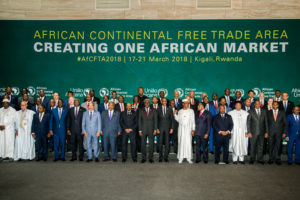
June 23, 2019//-The state of the global IT economy has revealed that Africa is lagging behind other continents of the world. Africa accounted for just 5% of global IT spending in 2017.
That’s a drop in the bucket compared to countries like North America and Asia where the figure is 33% each.
Why is there such a lag? Does Africa have unique issues that must be addressed first before its numbers could increase? In this article explores those questions and more.
Why is there such a lag?
First, let’s look at why there is such a lag.
Infrastructural Issues
Most African countries are relatively poor. Many battle to maintain basic services. With that being the case, the provision of a solid IT infrastructure is left to big businesses for the most part.
And here they come against another problem. The infrastructure that big businesses need to thrive may also not be in place. If you look at the big cities in African countries, there are roads, electricity, and so on.
Establishing IT services and extending networks here is a lot simpler. Move further out into the country, and things become more complicated. For a mobile provider to provide a cell signal, for example, it would require a clear area, source of power, and so on.
In towns, all of that is already there. If the provider goes further out, literally into the bush, it has to do everything by itself. This makes it a costly exercise both in terms of capital outlay and maintenance later on.
Policy Issues
Another problem is policy issues. Very few countries on the content have a solid IT policy. There might also be issues like licensing that need to be addressed. In South Africa, for example, your telecom service provider needs to have a license granted by the government. These licenses can be difficult to come by.
There does seem to be something of a trend on the continent to protect the more established players. Governments in Africa might work towards protecting their own assets and state-owned institutions rather than making the way clear for newcomers.
Africa is a resource mismanaged continent
Many countries in Africa do have significant natural resources. Not all countries benefit from those resources, though. There also does seem to be high levels of corruption in some of the governments on the continent.
The upshot is that even when the country itself has rich resources, the wealth does not necessarily trickle down to the people in the country. The corruption has further crippling effects on the economy in that it also entails nepotism.
That is, jobs are given to pals rather than the most qualified person. Now, that person may not be corrupt. They may even try to do the job to the best of their ability. The problem is, though, that they don’t have the proper skills.
So even where there is no direct corruption, there still may be incompetence.
Now, I don’t mean to generalize here. Not all African countries have the same issues. Not all governments are corrupt or mismanaged. I was just raising this point so that outsiders can understand some of the challenges that dampen the IT economy.
Not as much disposable income
With the infrastructural challenges and the cost of building infrastructure, companies want to ensure that they’re going to make their investment back. Here again, we run into the problem of poverty in Africa.
While a lot of Africans do have access to mobile phones, other electronic devices like laptops might prove a little too expensive. If you have to choose between buying food for the next couple of months and getting a laptop, which would you choose?
Also, worth noting is that the cost of accessing the internet is also pretty high across the continent. If you can get a signal, you’ll pay a lot for it. Factor in the cost of equipment and it’s not always going to be seen as a worthwhile investment.
Boosting the IT Economy in Africa
How can Africa turn this situation around? The only real way is to convince local businesses and governments to start working together to find a solution to the issue. Better regulation of the industry and opening the way for new players are good places to start.
Recently, in South Africa, for example, a ruling was issued that made it imperative for companies to roll over unused data or airtime. Before this, the data or airtime would roll over until the next month. If it weren’t used then, it would be lost.
It’s a small example, but also a good one of how better government regulation could force companies to help reduce the costs of IT for consumers.
African Eye Report


